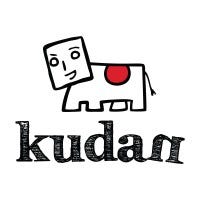Last time out we focused on computer vision companies important for the Metaverse. We’re going to take a look at businesses bent on improving video processing and engines for the Metaverse.
1. Visbit

Visbit is a visual technology company enabling 360-degree videos and VR content to be easily streamed and viewed at the highest possible quality across multiple platforms. With its patented Visbit View-Optimized Streaming (VVOS) technology. Visbit offers content publishers and app developers the world’s first all-in-one streaming service that can deliver and play 4K to 12K resolution 360-degree VR videos without noticeable latency over regular Wi-Fi and LTE for mobile and eventually all VR headsets. Visbit consists of a publisher portal for content management and BI analytics, a VR cloud for transcoding, streaming via CDN and hosting, and VR player SDKs across all mobile and Web VR platforms.
Founded in 2015 by Changyin Zhou and Elaine Lu, headquartered in Sunnyvale, California and has raised some $5.5 million in funding over three rounds.
2. Kudan

Kudan is a Toyko-based company founded in Bristol, the UK in 2010 by Tomo Ohno. Providing proprietary Artificial Perception technologies based on SLAM to enable use cases with a significant positive impact on our lives and societies such as autonomous driving, robotics, AR/VR and smart cities, Kudan has aspired to be an irreplaceable provider of spatial awareness for all future machines and devices, disrupting both industrial landscapes and consumer lives. Similarly, its technology provides a critical component for these systems, enabling machines to perceive the world. It offers commercial-grade localization and mapping software based on a technology called SLAM (Simultaneous localization and mapping).
This technology enables machines and devices to understand where they are, how they are moving and their environment. Perception of their surroundings is a critical ability for machines and ultimately autonomous decisions will depend on the quality of this information. Now Artisense, another SLAM software company spinning out from Technical University Munich, joined Kudan group to accelerate SLAM development to solve more challenging problems.
Since its founding, Kudan has raised a total of $5 million over six rounds.
3. Improbable

Improbable is a British technology company that has raised an incredible $604 million in funding over six rounds since being founded in 2012 by Herman Narula and Rob Whitehead. Dedicated to solving the challenges of building virtual worlds, the London-based company’s vision is to bring about rich, interactive environments. That will transform economies and industries, to make people happier, safer and more connected. These can take the form of multiplayer games or synthetic environments that simulate the real world. Which helps governments model, plan and train.
As a pioneer in envisioning the possibilities for positive social and economic change through multiplayer and multiuser connectivity, creativity and collaboration, Improbable is building an ecosystem of technologies and partners to realize its vision. Furthermore, its unique technology enables thousands to assemble in a single virtual game environment or simulate real-world challenges at scale. The critical infrastructure it creates will power the coming age of virtual worlds and it aims to become a leader in this space, defining and powering a major evolution in human interaction.
4. Unity

Unity (NYSE: U) is the world’s leading platform for creating and operating real-time 3D (RT3D) content. Creators, ranging from game developers to artists, architects, automotive designers, filmmakers, and others, use Unity. Unity’s platform provides a set of software solutions to create, run and monetize interactive, real-time 2D/3D content for technology. Likewise, the company’s 1,800+ person research and development team keeps Unity at the forefront of development. Furthermore, they work alongside partners to ensure optimized support for the latest releases and platforms. Users have downloaded unity apps more than five billion times per month in 2020.
Nicholas Francis, Joachim Ante and David Helgason founded Unity in Copenhagen, Denmark in 2002. In 2020, the game engine developer went public on the New York Stock Exchange. At its IPO, Unity raised more than $1.3 billion at an incredible $13.6 billion valuation. As a result, these video processing and engine companies will transform the Metaverse.



















